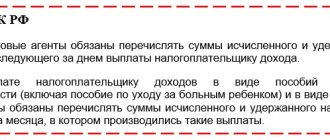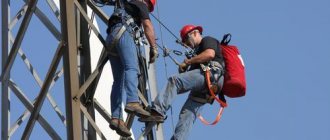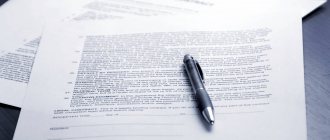What is an autobiography?
This is a description of events in a person’s life that characterize his origin, family ties, training, work activity, marital status and other aspects of life.
Below are documents for use: examples, samples, templates, forms for filling out autobiographies yourself.
Sample of writing an autobiography when applying for a job (for a woman)
I, Shchukina Maria Maksimovna, was born on February 22, 1980 in Vladimir, Russia. Russian by nationality.
In September 1987, she entered the 1st grade of school No. 201 in the city of Vladimir. In 1992, for personal reasons, she moved with her family to Khabarovsk, where in 1997 she graduated from municipal gymnasium No. 8. In August 1997, she entered the full-time department of Khabarovsk State University, Faculty of Economics, and graduated with honors in economics in June 2001.
From August 2001 to October 2008, she worked at Khabstroy LLC as an economist.
She got married in 2003. From 2004 to 2007 she was on maternity leave.
From December 2008 to the present, she worked at OJSC Mechanics as an economist.
Husband: Shchukin Kirill Vasilievich, born in 1977, education: secondary specialized. Works at the tire service station as an auto mechanic.
Daughter: Shchukina Elizaveta Kirillovna was born on September 19, 2004, has been studying since 2011 at school No. 304 in the city of Khabarovsk.
Parents: Shchiptsov Maxim Mikhailovich, born in 1955 and Shchiptsova Elena Konstantinovna, born in 1956. Currently retired.
There are no relatives abroad.
Currently I live with my husband and daughter in Khabarovsk, Lunnaya street, building 75.
Sample autobiography when applying for a job (for men)
I, Alexey Vasilievich Shapovalov, was born on January 12, 1992 in the village of Maksimovka, Rostov region, Russian Federation. In 1999 I went to the first grade of secondary school No. 43 in the city of Rostov-on-Don.
From 1999 to 2005 I played football, I have a youth rank.
He graduated from 9 classes and in August 2008 entered the Rostov Electromechanical College to major in automotive technologist.
After graduating from college, he served in the missile forces from 2011 to 2012.
In 2012, he moved to Novosibirsk and got a job in a tire shop, where he worked as a consultant until November 2021.
From 2021 to the present I have been working at the Fara service station as a mechanic.
We have no previous convictions. Married, I have a son and daughter.
Wife: Shapovalova Diana Viktorovna, born in 1994. Born in Novosibirsk. Currently a housewife.
Daughter: Shapovalova Kristina Alekseevna, born in 2013.
Son: Shapovalov Dmitry Alekseevich, born in 2021.
Other relatives:
Mother: Vera Vitalievna Shapovalova, born in 1970. Works as a general practitioner at state clinic No. 13 in Rostov-on-Don.
Father: Shapovalov Vasily Leonidovich, born in 1965, works at the Architectural Bureau of Rostov-on-Don. Brother: Shapovalov Ivan Vasilievich, born in 1998, studying at Rostov State University to become a surgeon. Not married.
At the moment I live with my wife and children in the city of Novosibirsk, Vladimirskaya street, house 52.
What should a student include in his autobiography?
Of course, the student must notify the potential employer about his educational successes (which course he took, with what grades, absence of debts for the sessions, positive characteristics and experience gained in practical training, etc.) It is worth briefly mentioning participation in special conferences and, in general, in the public life of his native university.
It also makes sense for a student to write in his autobiography that studying is easy for him, and he takes the educational process seriously and with interest. Also inform that the specialty he is receiving is not accidental, the choice was made consciously, and the student intends to do interesting work throughout his entire working life. This always makes an impression on an employer looking for a specialist for a specialized, including highly specialized vacancy. By the way, many managers prefer to take on students, even without experience, but with healthy professional ambitions.
Autobiography to a military school, college, technical school
I, Eremeev Ivan Sergeevich, was born on June 5, 1999 in Iskitim, Novosibirsk region, Russia.
I went to the first grade of secondary school No. 2 in Iskitim in 2006. At school he led an active life, participated in school basketball competitions and olympiads in mathematics and physics. Took third place at the regional physics Olympiad. I was involved in the school patriotic club.
In 2015 I graduated from 9th grade and am studying at the Novosibirsk Agrarian College to become an agronomist.
I actively participate in student life. I'm interested in painting.
Parents:
Mother: Eremeeva (Zubova) Ekaterina Vadimovna, born on May 7, 1972 in the village of Aleksandrovka, Rostov region. Lives in the city of Iskitim in the Novosibirsk region. A nurse by training, she works in a state hospital in the city of Iskitim.
Father: Eremeev Sergey Evgenievich, born on October 10, 1970 in the village of Mayak, Novosibirsk region. Lives in the city of Iskitim, Novosibirsk region. An electrician by training.
There is a sister Ivanova (Eremeeva) Anastasia Sergeevna, born in 1990, lives in Novosibirsk, works as an administrator at the Martino restaurant, married.
Currently I live in a student dormitory in the city of Novosibirsk.
My relatives and I were not prosecuted.
Basic rules for writing and formatting an autobiography
There are no strict requirements for the preparation of an autobiography. Regardless of the chosen format, the document must comply with the following principles:
- compliance with the chronology of the events described;
- literacy;
- reasonable sufficiency of the amount of information provided;
- truthfulness.
The narration can be conducted either from the first person or from the third. Dates can be formatted in different ways (for example, October 2012 - May 2015, from October 2012 to May 2015).
If a resume is characterized by short, succinct phrases, the text of an autobiography is traditionally more detailed. Here it is important to reflect the cause-and-effect relationships that explain the stages and turns in the development of the candidate’s career. It is permissible to use a free style when narrating, as it allows the candidate to more clearly express his position in life. More stringent requirements are imposed on the autobiographies of future civil servants. The style should be restrained and businesslike.
In standard form, autobiographies are drawn up on A4 paper in compliance with the document markup requirements applicable to business papers.
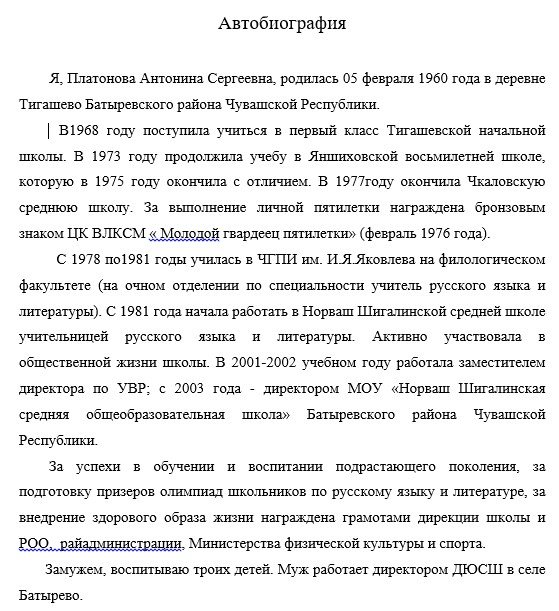
Autobiography can take from one to several pages
For civil service in the Ministry of Internal Affairs
I, Portnyagin Mikhail Dmitrievich, was born on June 13, 1986 in Tula, Russia. Russian by nationality. A citizen of Russian Federation. In 1993, he moved with his family to Moscow and went to the 1st grade of secondary school No. 113 in Moscow. After graduating from 11th grade in 2004, he entered the Moscow University of the Ministry of Internal Affairs, and in 2007 he graduated with a degree in Jurisprudence.
From 2008 to 2011 he worked at JSC Flagman as a lawyer.
From June 2011 to the present, I have been a legal consultant at Vympel LLC.
Married, I have two children.
Wife: Portnyagina Olga Danilovna, born in 1989, born in Moscow, economist by training, currently a housewife.
Daughter: Portnyagina Elena Mikhailovna, born on August 16, 2005, studies at Moscow gymnasium No. 81. Daughter: Elizaveta Mikhailovna Portnyagina, born May 11, 2010.
Parents:
Mother: Portnyagina (Rumyantseva) Alexandra Vasilievna, born in 1956. A journalist by training, currently retired. Lives in Moscow.
Father: Portnyagin Dmitry Alekseevich, a turner by profession, currently retired, lives in Moscow.
In 2010, I visited Germany for tourism purposes, and in 2012, Sweden.
Currently I live with my family at the address: Moscow, Karl Marx Street, building 76.
Neither I nor my relatives have been convicted; we have no relatives outside the CIS.
What are the most common mistakes made when writing an autobiography?
The autobiography tells about events that have already happened in the life of the candidate. Nevertheless, one of the common mistakes is the violation of chronology when drawing up a document. An error is also an intentional or accidental distortion of information. Similar facts can be revealed by comparing the text of the autobiography with the information specified in the candidate’s resume.
When composing your autobiography, you must remember that you are working on a personnel document. You should not “enrich” the text with lyrical digressions, reasoning, or repent of your mistakes. The text should be moderately detailed, logical and easy to read. It is also useful to avoid excessive detail when talking about your successes. Thus, an employer may be interested in the topic of the final graduation work, but there is no need to list the topics of all coursework completed during the course of study.
A detailed autobiography, like a resume, can be compiled once in a lifetime, and then only supplement the document with new facts and update the information specified in it, bringing it into line with your goals and the requirements of a new potential employer. The employer must take into account the fact that the candidate’s autobiography refers to personal data protected by law. Therefore, in accordance with the law, when requesting an autobiography, it is also necessary to obtain the applicant’s consent to the collection and subsequent processing of information.
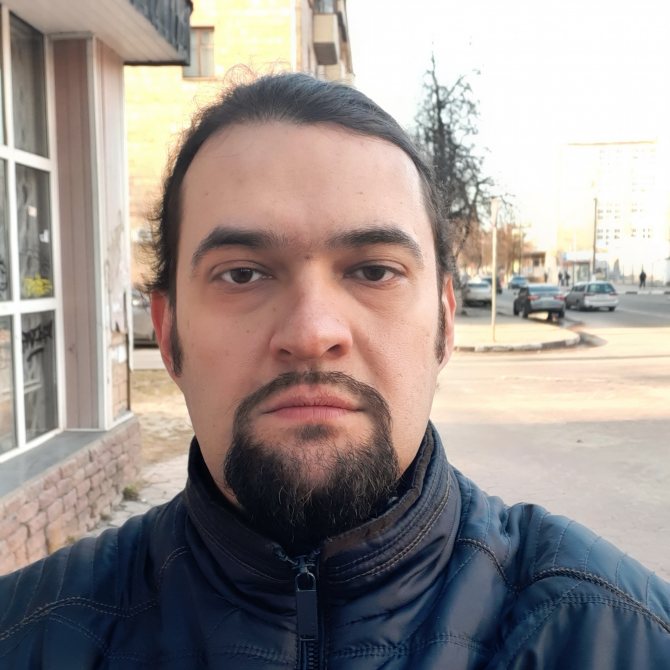
Vitaly Sazonov
Lawyer, author of articles on legal topics. Education: state educational institution of higher professional education "Moscow State Open University".
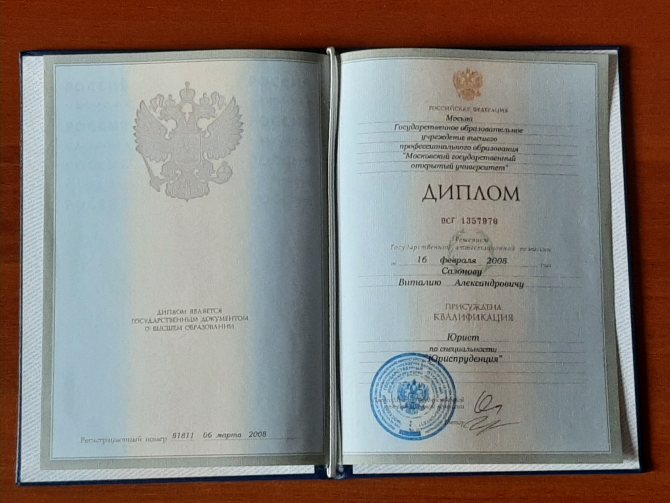
For admission to university
I, Markova Kristina Evgenievna, was born on March 25, 1999, in the city of Krasnodar, Russia.
In 2006, she entered the 1st grade of secondary school No. 176 in Krasnodar. She was involved in theater productions at school and extracurricular activities. Participated in olympiads in biology and physics.
In 2015, she graduated from 9th grade and entered the Krasnodar Medical College to become a nurse. She was successful in her studies and participated in scientific projects. Graduated from college with honors in 2021.
In July 2021 she moved to Moscow.
Currently I live at Pushkin Street, building 143a.
I am interested in medicine and biology.
Relatives:
Mother: Markova Daria Vyacheslavovna, born on September 2, 1980 in St. Petersburg. A biologist by training, he works at the Scientific Research Institute in the city of Krasnodar.
Father: Evgeniy Andreevich Markov, born on October 8, 1979 in the city of Orel. A linguist by training, he works from home. Lives in the city of Krasnodar.
Sister: Agafonova (Markova) Yulia Evgenievna, born in 1993, lives in Rostov-on-Don, married. Translator by training. Currently a housewife.
Brother: Pavel Evgenievich Markov, born in 1995, lives in St. Petersburg, student at St. Petersburg State University.
I have no relatives outside of Russia, no criminal record.
Autobiography for working in the Ministry of Emergency Situations
I, Andrey Eduardovich Chernov, was born in Volgograd on May 15, 1991. Citizen of the Russian Federation. Russian by nationality.
In 1998 I went to secondary school No. 34 in Volgograd. After finishing 9th grade in 2007, he entered the Volgograd Polytechnic College to study electrical engineering.
After graduating from college in 2010, he served until 2011 in the army, in the airborne forces.
Since 2011, he worked as an electromechanic at Electrovolga LLC.
Wife: Chernova Anastasia Viktorovna, born on December 5, 1993, in the city of Podolsk. Russian. Has a completed higher education majoring in ecology.
Son: Chernov Sergey Andreevich, born in 2013.
Mother: Chernova (Omelina) Valeria Nikolaevna, born in 1977, lives in Volgograd, works as head of the psychology department at Volgograd Pedagogical University.
Father: Chernov Eduard Konstantinovich, born in 1977, lives in Volgograd, retired military man. I and my close relatives have no criminal record.
I currently live in Volgograd, Krasnoarmeyskaya street, building 45, apartment 118.
How to write a good autobiography about yourself for work?
An autobiography allows a person to tell about himself and make a special impression on a potential employer.
Writing a good autobiography is easy, you just need to follow a few rules:
- There is no need to write a huge and detailed dossier. Enough with succinctly presented important life events with dates and results. A large letter will not produce the expected effect, so the autobiography should take up a maximum of two pages, or better yet, one and a half pages.
- It must be written correctly and in an official style. A person who reads, as a rule, pays more attention to the style of the narrative than to the facts of life themselves. No mistakes, slang words or ridiculous sentences. Only dryly stated facts of a neutral color.
- All stages of life in an autobiography should be presented sequentially, in chronological order, without omitting important points, such as the result of learning. You need to be as honest as possible and not hide any facts that could easily come out later.
- The information must be genuine. Fictitious details will not help you get the job you want, besides, everything can be checked and it will not make a good impression; it will rather ruin a person’s reputation in the labor sphere. Write honestly, reputation is more important.
- The information should be structured and easy to read; there is no need to use complex turns of phrase or add epithets. You can use standard templates from the samples, changing the facts to your own.
Hobbies and personal qualities
I am interested in fishing, tourism, and outdoor recreation.
Unfortunately, errors are periodically found in articles; they are corrected, articles are supplemented, developed, and new ones are prepared. Subscribe to the news to stay informed.
If something is unclear, be sure to ask! Ask a Question. Discussion of the article.
More articles
Summary. Correct spelling and composition. Example, template, example, bl... How to write a resume for a job search....
How to behave at work, in the office? Etiquette. Rules. Correct behavior... How to behave correctly at work so that you are loved, respected and promoted according to...
How to write an application for financial assistance? Example... The procedure for writing an application for financial assistance. Examples. ...
Explanatory note about being late for work... An example of an explanatory note that I once wrote to my manager...
How to Write a Memo? Template, sample... Tips for writing memos. Rules, structure, examples. As usual...
Let's write an explanatory note correctly. Practical recommendations... How to write an explanatory note. Tips, recommendations. Answers to questions read...
Management competencies. A good, successful leader, boss,... Leadership skills. What should a leader be able to do to be successful, respect...
Explanatory note - correct spelling... Explanatory note. Sample. Correct structure, instructions, explanations for...
Psychological autobiography
–
a collective name for a large group of methods for obtaining biographical information from the person being studied.
These methods make it possible to obtain psychological history data, information about the most important events and stages of a person’s life path, about her attitude to what she has lived through, and about the characteristics of her anticipation.
General information (gender, age, education, marital status, professional information, health status, etc.) can be obtained through conversation, questionnaires, and biographical questionnaires. Specific information (assessment of past and possible future events, attitude towards oneself and others, subjective perception of one’s life path, etc.) is obtained in various ways. The most common and simplest is an oral or written narration about one’s life with a simultaneous description of one’s mental state during the corresponding periods.
The narration should be facilitated with the help of a presentation scheme offered to the subject. The diagram contains separate reference points related to different age periods of a person’s life and to different areas of his activity.
technique is popular in such studies .
The subject is asked to draw a straight horizontal line, the extreme points of which represent birth and death. On the segment, the subject selects a point corresponding to a given moment in his life. Thus, he correlates his past and future, evaluates his temporary capabilities. In these two areas, he marks the most important events: those that happened in the past and those expected in the future. It is advisable to accompany these milestones with an emotional assessment.
Another well-known technique is controlled fantasy.
It can be carried out in different ways. For example, “getting used to” your imaginary image in old age and summing up your life. Or “accelerating time” by repeatedly sequentially imagining yourself older and older.
Among the latest developments, we point out the technique of E. Yu. Korzhova,
proposed in 1994 ᴦ. to identify self-perception of an individual's life path. The biographer's answers and descriptions concern his past, present and possible future, but mainly the events of his recent past. A procedure is provided for the formalization and unification of autobiographical material, which makes it possible to present it quantitatively. The methods of data interpretation provided by the methodology allow it to be classified as event-biographical methods. And since in the analysis of the material the personal meaning (i.e., meaning) of the answers comes to the fore, this technique (as well as the method of psychological autobiography in general) can be classified as a group of expressive projective methods. The author has developed criteria for data analysis. When interpreting, the following features of a person’s perception of events are taken into account: 1) formal characteristics - the productivity of reproducing images of the past and future; the significance of this event for oneself in comparison with others; desirability of events; the degree of influence of events on the subsequent course of the subject’s life; the time of their anticipation (anticipation) and retrospection; 2) content characteristics – type and type of significant events; their “originality-popularity” (frequency of occurrence); their “strength-weakness” (the predominant influence of personal or situational variables). The subjective picture of the life path is perceived as a holistic image of human existence: sensations, perceptions, emotional and intellectual experiences and assessments of one’s own life and, ultimately, attitude towards it. A number of components of this internal picture of one’s life are subject to analysis: 1) somatic (bodily) component - attitude towards one’s health, age, changes in both, etc.; 2) personal (individual psychological) component – attitude towards oneself as an individual; 3) situational (socio-psychological) component - attitude to life situations in which a given person was included. The results for a particular subject are compared with the normative ones obtained for groups of somatically healthy and sick people. Healthy people are differentiated into two professional groups: teachers and engineering and technical workers (E&T). The technique allows for the diagnosis of mental conditions. It can be used for both individual and group research and examination.
INSTRUCTIONS!
A person’s life largely depends on the conditions in which his development takes place. Mental abilities develop depending on the opportunities that were available in a person’s life, and his current mental state is just the result of past experiences, impressions and life experiences.
Your detailed autobiography will allow the psychologist to more correctly understand your emotional experiences and more correctly evaluate the results of the psychological examination. Therefore, for the sake of your own interests, truthfully indicate in your biography all the important events and circumstances of your life.
The results of psychological research are strictly confidential and no one except a psychologist has the right to view them. Therefore, you can provide the most sensitive data without fear that someone else will use it to your detriment! On the following pages there is a detailed autobiography program that will help you remember and will not allow you to forget anything very important. There is no need to write answers or explanations for every word of the program; if some points do not concern you, there is no need to mention them. Indicate only what you consider important and what you think will help the psychologist understand you better.
Please write your biography legibly and coherently on blank sheets of paper. Please do not write directly in the text of your autobiography. Then transfer it only to the hands of a psychologist.
TEXT OF AUTOBIOGRAPHY: Please write in coherent sentences, fragmentary answers are not enough. In addition, they will not characterize your abilities very well. Therefore, imagine that you are simply writing an essay on the topic
"My life". ATTENTION! After you finish writing your autobiography, give it personally to a psychologist and only to him! Otherwise, someone else may find out about you something that you yourself would not want to tell him!
Origin: Place of birth, environment (that is, what kind of people surrounded you in childhood, what they did, how they treated you, i.e. your close relatives, friends and acquaintances of your parents, neighbors, your friends, “yard company” and etc.). Social status of the family. Time of birth and the situation around your birth (that is, how your parents reacted to your birth, whether they were happy or told you that you were born “at the wrong time”).
Family: Parents (name and patronymic of father and mother), educators. What did they do (who are they by profession, where did they work, their attitude towards work, what can you say about their work). Their relationship with each other and their attitude towards you. Your brothers and sisters (if any): older or younger (birth order in the family), their age, what they do (where they study or work), how they relate to you, and you to them. How do you assess the harmony in your family? What diseases do your parents and other close relatives have? How do property relations develop in the family, which parent or sibling provides for the family. Can you call your family wealthy enough not to think about money?
Upbringing: Where and how you were raised. Who was involved in your upbringing (parents, grandparents, brothers and sisters, orphanage, etc.). How strictly or, on the contrary, how freely you were raised. What advantages and merits of your upbringing do you see, what mistakes and disadvantages do you see? Have you attended kindergarten and at what age? Do you have any impressions from him? Can you remember the feelings that you have associated with visiting kindergarten?
School: When did you go to school (at what age), which one (secondary, special, auxiliary, gymnasium school, etc.). How did you attend school (did you go there with pleasure or, conversely, did you skip a lot and didn’t really want to go there).
Have you skipped classes? What grade did you start skipping them from? What was your academic performance? Write down the subjects that you liked most and which ones you didn’t like at all. How were your relationships with teachers and classmates? Which teacher did you respect the most and why?
Special Experiences
: Please describe the most remarkable incidents and impressions from your childhood. This could be a trip, a vacation in a village or a pioneer camp, a book read, a movie seen, a meeting with an interesting person, anything. Have you ever experienced such strong mental shocks that you tried to take your own life?
Health
: What diseases did you have? Have you been in hospitals? If yes, for how long? Have you been registered with a psychiatrist? Have you been treated in psychiatric hospitals and for what reason? Have you ever had any accidents? Have there been any traumatic brain injuries? How did you eat before you went to prison? Have you smoked a lot? Have you used drugs, what kind and in what quantity? Did you drink alcohol and how much?
An example of an autobiography will be useful to any person, because it is not necessary to write it every day, but even a schoolchild must be able to draw it up. This document must still be drawn up taking into account the general requirements for writing business letters.
An example of a job application CV will, of course, differ from this document written by a student, but the structure will be very similar.
Form - template for autobiography for civil service in the Ministry of Emergency Situations, Ministry of Internal Affairs
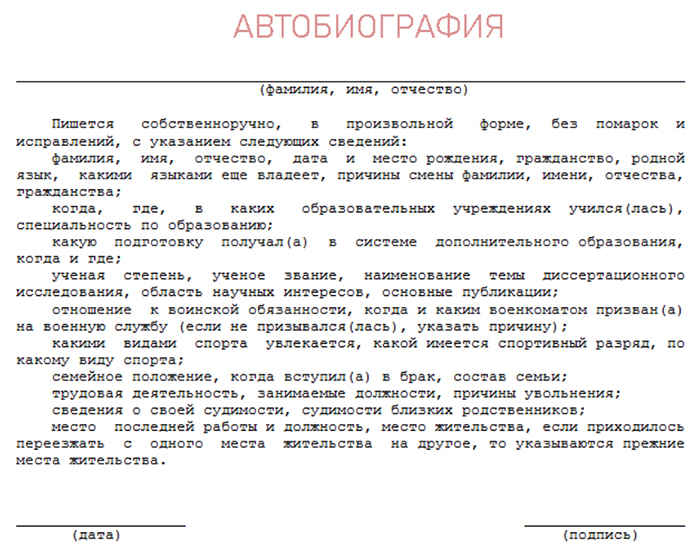
It doesn’t matter where you get a job: in the Ministry of Emergency Situations, for the military registration and enlistment office, in the civil service in the police of the Ministry of Internal Affairs, as a worker, as a civil servant or as an ordinary teacher in a kindergarten under a contract - you must know how to correctly compose (write) and prepare an autobiography for submission at the place of work. The management of the organization at your place of employment will be familiar with your personal data, and they will make a decision on your employment or refusal according to the documents you submitted.
Characteristics for a child in kindergarten from the teacher, sample Receipt: deposit (advance) for receiving money (sample) Receipt in the form of a deposit for a garage between individuals, sample Deposit (advance) for receiving money for a car (car), sample Example of a receipt in receiving a deposit for a house (dacha) and land Certificate from the place of work (sample, example, form)
What you should not include in your autobiography
2. Do not indicate in the document or talk about your religion at the interview.
4. Don't talk about your hobby. If you are a master of the art of hand-made work, then you need to indicate this only if your future work will be directly related to it.
5. For security reasons, you cannot mention the passport number and series, identification code, etc.
6. You should not talk about your health status, height, weight, hair color, eye color, etc.
Autobiography was known back in antiquity. It arose in parallel with the concept of personality and the awareness of the ability to reflect.
Despite the fact that the document sets out the facts, it more demonstrates the author’s subjective attitude towards himself.
Adequate self-esteem and the ability to present oneself beautifully can indicate the candidate’s prospects for the position and his determination.
An autobiography is a short story about yourself that allows you to find out general information about a person. It is used in many situations: when applying for a job, entering a university, etc. In this article we will tell you how to correctly format this information in order to make a positive impression about yourself.

